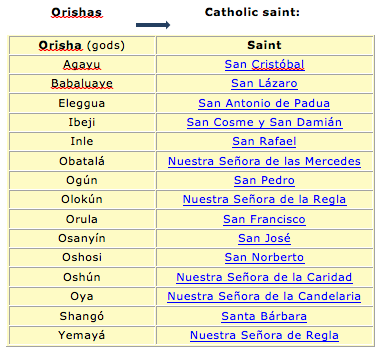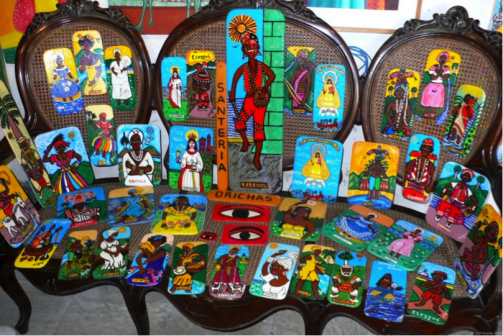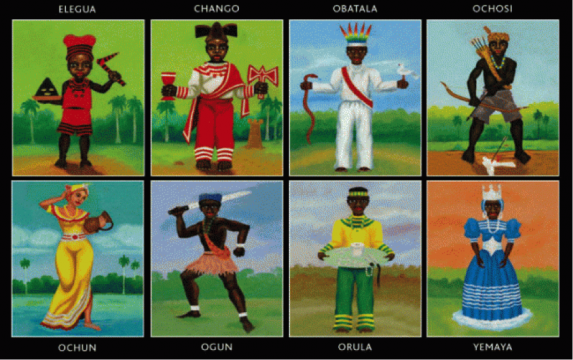SANTERIA
This religion has its origin in the tribe Yoruba from Africa, who lived in the place that we today know as Nigeria. In the end of the XVIIIth century and beginning of the XIXth century the Yorubas had several wars and its people were slaved. These slaves were brought to Cuba and Brazil to work in sugar plantations. The Yoruba was called "lucumi" because their greeting: "oluku mi" (my friend).
This religion is practiced in Cuba, Puerto Rico, Dominican Republic, Panamá, Venezuela, Brazil, Colombia and places where there is a large hispanic population in the United States of America (Florida, Nueva York, San Francisco, New Orleans, Los Angeles, Miami y San Diego).
Santería has a set of religious systems that mixes catholic beliefs with traditions of Yoruba culture, therefore is a religious belief that arising from a syncretism of European and African elements.
They believe in a force or Universal God, who is the creator, called Olodumare. Then, there are the Orishas which are divinities that govern various aspects of the world. The identification of the Orishas with the saints more known, have the simple relation with the actions of the saints:
According to the santería, people's life is supervised by an Orisha, who is active in their lives and people have to go to mass and to the ceremonies:
Initiation:
Before the initiation the person has to receive a "cleaning" to purify and after, the person receives five necklaces, known like: Obatalá, Shangó, Yemayá, Eleggua y Oshún, that protect from evil.
The hierarchy:
Not all the practitioners of Santería are Santeros, this name is reserved only for priests (Omo - Orishas).
The ceremony where a person becomes a saint is called "asiento", in which a linkage is created between the Santero and the Orisha. After this ceremony the person can ascend in the hierarchy and then continue with the ritual knife, with which he is allowed to sacrifice animals.
Divination
The high priests hierarchy is called "Babalaos". The divination is the power of knowing the future or discovering if a person is possessed by an evil spirit or good. If the spirit is evil the Babalao has to perform a "cleaning" and if the spirit is good, the Babalao has to strengthen it.
Sacrifices:
The Santeros have to offer sacrifices ("ebbo") to the Orishas. Those can be fruits, candles, food, etc. Each Orisha has herbs and animals that like to eat; for this reason the Santería has shops, called "botánicas" where herbs and religions things are sold. But no animal is sacrificed capriciously. Every sacrifice responds to the request, through the methods of divination, or an ancestor Orishá requiring one or more animals in order to resolve the situation that the person wants to solve.
By Edith Yasmin Varela Ramirez
.


